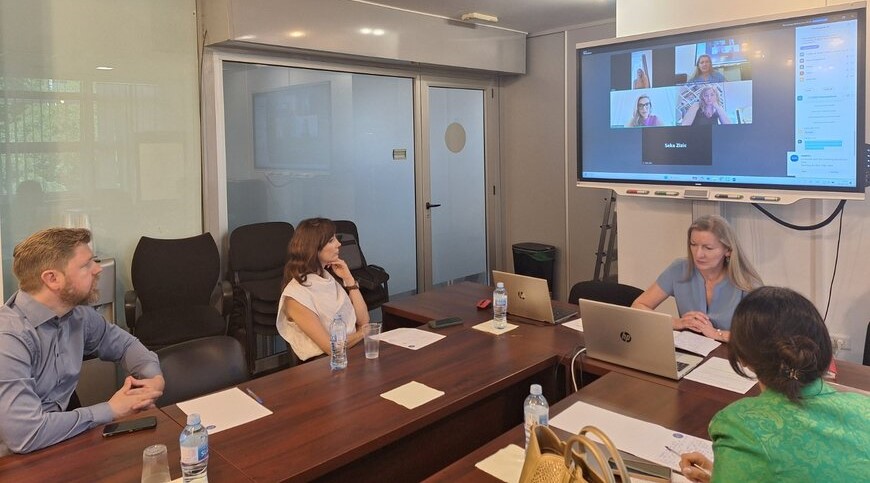With the aim to enhance the access to justice for the most vulnerable victims, on 19 June 2025 a coordination meeting took place on development of a specialised training course for provision of free legal aid to the human trafficking victims.
The initiative is part of a broader framework to strengthen access to justice for trafficking victims by ensuring the availability of free legal aid. As part of this effort, recent amendments to the Law on Free Legal Aid adopted in December 2024 introduced a new requirement that lawyers assisting the most vulnerable victims must possess specialised knowledge and professional expertise.
In line with amended legislation, the Judicial Training Centre, in cooperation with the Bar Association, has begun developing a comprehensive training curriculum designed to improve the skills and qualifications of legal aid providers. Only those lawyers who successfully complete the specialised training and demonstrate the necessary competence will be accredited to provide legal aid to victims of human trafficking.
This coordinated effort, supported by the Action “Strengthening accountability of the judicial system and enhancing protection of victims’ rights in Montenegro” part of the joint European Union and Council of Europe programme “Horizontal Facility for the Western Balkans and Türkiye”, and the EU4FAST/GIZ project, marks a significant step forward in ensuring that legal aid in Montenegro is not only accessible but also equipped to meet the complex needs of trafficking victims.


